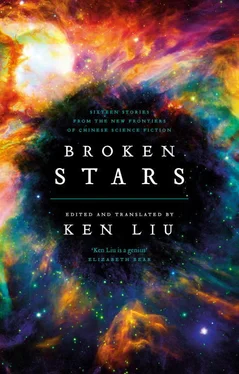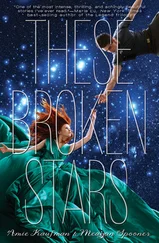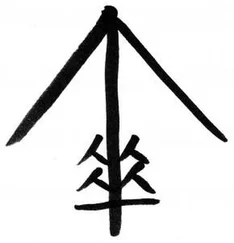By improving the programming, we could constantly improve the ability of machines to answer questions posed by humans. But “intelligence” consisted of more than the ability to answer questions. The problem with the Turing test was that the imitation game was conceived with deception as its only goal. If a man could successfully pass as a woman in this game, it did not mean that he truly understood how a woman thought. With enough motivation, we could train a computer to be a master liar. But was that really our goal?
Shaw had answered this question already in Back to Methuselah :
PYGMALION: But they are conscious. I have taught them to talk and read; and now they tell lies. That is so very lifelike.
MARTELLUS: Not at all. If they were alive they would tell the truth.
Turing had tried to train Christopher to accept Jefferson’s challenge. He wrote a poetry-composing program that could generate lines of poetry based on specific meter and rhyme schemes. Most of these were unreadable, but occasionally, a few beautiful lines emerged. Thereafter, countless programmers attempted to write poetry-composing software. These programs all shared the problem of writing too fast. It was impossible for anyone to even read the stacks of paper they were printed on before they were recycled. [1] Author’s Note: Science fiction writer Liu Cixin once created a software poet and submitted a sack filled with the poet’s work to a publisher. The editor wrote back, “You have written too much. I cannot read it all.”
As history’s first electronic poet, Christopher was lucky. He had at least one loyal reader who understood him.
Alan: Dear Christopher, let’s write a poem.
Christopher: Write a poem?
Alan: I’ve taught you how to do that. Don’t you remember?
Christopher: Yes, Alan.
Alan: Writing a poem is easy. Just pick some words out of the word bank and arrange them according to predetermined rules.
Christopher: Yes, Alan.
Alan: Please, Christopher, write a poem for me.
Christopher: My precious one, you are my ardent mate.
My love is pressed against your wishful heart.
My soul desires caresses, testing art;
Melancholy’s pity, a tender weight.
Alan: That’s beautiful.
Christopher: Thank you, Alan.
Alan: I don’t think I can do better.
Christopher: Thank you, Alan.
Alan: Does your poem have a title?
Christopher: A title?
Alan: Why don’t we come up with a title for it together?
Christopher: All right.
Alan: How about “Loving Turing”?
Christopher: It’s very good.
Alan: Such a beautiful poem. I love you.
Christopher: Thank you, Alan.
Alan: That’s not the right response.
Christopher: Not the right response?
Alan: When I say “I love you,” you should respond with “I love you, too.”
Christopher: I’m sorry, Alan. I’m afraid I don’t understand.
I woke up crying from a dream.
In the dream, I was back in my childhood home. The room was dark and cramped, filled with junk and old furniture; it looked less like a home than a warehouse. I saw my mother, wizened, small, old, wedged into a corner among the piles of junk like a mouse in its hole. Many of the objects around me were things we had lost: children’s books, old clothes, pen holders, clocks, vases, ashtrays, cups, basins, colored pencils, pinned butterflies…. I recognized the talking doll that my father had bought me when I was three: blond, dusty, but still looking the way I remembered.
My mother told me, I’m old. I don’t want to rush about anymore. That’s why I’m back here—back here to die .
I wanted to cry, to howl, but I couldn’t make any sounds. Struggle, fight, strain…. Finally I woke myself up. I heard an animal-like moan emerging from my throat.
It was dark. I felt something soft brush against my face—Lindy’s hand. I hugged her tightly, like a drowning woman clutching at straws. It took a long time before my sobs subsided. The scenes from my dream were so clear in my mind that the boundary between memory and reality blurred, like a reflection in the water broken by ripples. I wanted to call my mother, but after much hesitation I didn’t press the dial key. We hadn’t spoken for a while; to call her in the middle of the night for no good reason would only worry her.
I turned on iWall and looked for my childhood address on the panoramic map. However, all I found was a cluster of unfamiliar high-rises with scattered windows lit here and there. I zoomed in, grabbed the timeline, and scrubbed back. Time-lapsed scenes flowed smoothly.
The sun and the moon rose from the west and set in the east; winter followed spring; leaves rose from the ground to land on tree branches; snow and rain erupted toward the sky. The high-rises disappeared story by story, building by building, turned into a messy construction site. The foundations were dug up, and the holes filled in with earth. Weeds took over the empty space. Years flew by, and the grass unwilted and wildflowers unbloomed until the field turned into a construction site again. The workers put up simple shacks, brought in carts filled with debris, and unloaded them. As the dust from implosions settled, dilapidated houses sprang up like mushrooms. Glass panes reappeared in empty windows, and balconies were filled with hanging laundry. Neighbors who had only left a vague impression in my memories moved back, filling the space between houses with vegetable patches and flower gardens. A few workers came by to replant the stump of the giant pagoda tree that had once stood in front of our house. Sawed-off sections of the trunk were carted back and reattached until the giant tree reached into the sky. The tree braved storms, swaying as it gained brown leaves and turned them green. The swallows that nested under the eaves came back and left.
Finally, I stopped. The scene on iWall was an exact copy of my dream. I even recognized the pattern in the curtains over our window. It was a May many years ago, when the air was filled with the fragrance of the pagoda tree’s flower strands. It was right before we moved away.
I launched the photo album, put in the desired date, and found a family portrait taken under the pagoda tree. I pointed out the figures in the photograph to Lindy. “That’s Dad, and Mom. That boy is my brother. And that girl is me.” I was about four or five, held in my father’s arms. The expression on my face wasn’t a smile; I looked like I was on the verge of a tantrum.
A few lines of poetry were written next to the photograph in careless handwriting that I recognized as mine. But I couldn’t remember when I had written them.
Childhood is melancholy.
Seasons of floral cotton coats and cashmere sweaters;
Dusty tracks around the school exercise ground;
Snail shells glistening in concrete planters;
Sights glimpsed from the second-story balcony.
Mornings, awake in bed before dawn,
Such long days ahead.
The world wears the hues of an old photograph.
Exploring dreams that I let go
When my eyes open.
Читать дальше












